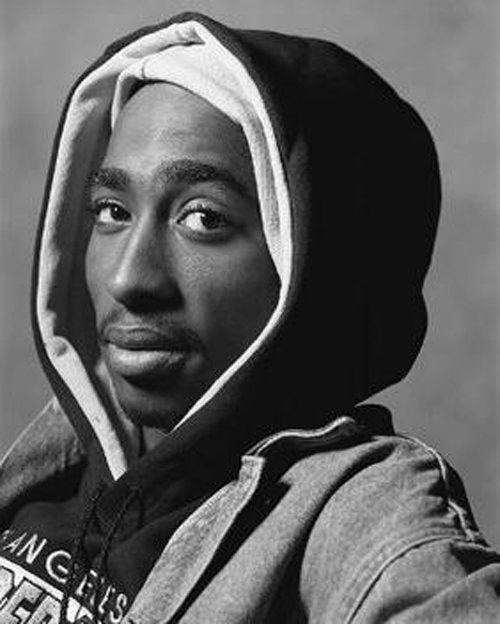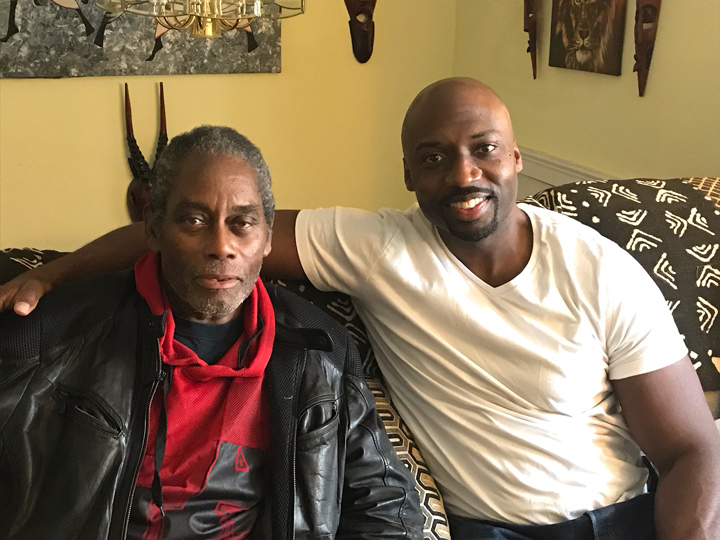The groundbreaking recording “The Rose that Grew From Concrete, Volume 1,” released in 2000, featured a series of poems by the late rapper and social critic Tupac Shakur — all interpreted by a collection of celebrated hip hop artists, writers, and actors reimagining Shakur’s powerful words in metered recitation set to pulsating beats.

In the title track, the renowned American poet Nikki Giovanni draws on Shakur’s compelling metaphor of a black rose growing through the cracks in the sidewalk as a symbolic representation of Black children thriving despite the oppressive forces that seek to arrest their development — a bitter and enduring legacy of institutionalized racism. In a 1985 letter, the Universal House of Justice, the democratically-elected governing body of the Baha’i world community, addressed the dire consequences for a society afflicted with the cancer of bigotry and injustice:
Racism retards the unfoldment of the boundless potentialities of its victims, corrupts its perpetrators, and blights human progress. Recognition of the oneness of mankind, implemented by appropriate legal measures, must be universally upheld if this problem is to be overcome.
Our guests on this inspiring episode of “America’s Most Challenging Issue,” Nasif Habeeb-ullah and Dr. Anthony Outler, are attentive gardeners of black roses — men dedicated to the restoration and cultivation of the discarded, the objectified, and the dehumanized.
With 25 years of experience as a trained mediator specializing in substance abuse counseling and anger management in the Fulton County jail system in Atlanta, Georgia, Baba Nasif, a venerated elder of the Atlanta Baha’i community, has committed his professional life to the redemptive work of restorative justice, and mentoring incarcerated men struggling with the material and spiritual circumstances of their condition.
RELATED: Discovering the Spiritual Significance of Black People
Born in Montgomery, Alabama, and raised in Columbus, Georgia, he was drafted into the military following his high school graduation and served in the Vietnam War. After a brief affiliation with the Black Panther Party, Nasif began a deep spiritual search that would lead him first to the Nation of Islam under the leadership of Elijah Muhammad, and then eventually to the unifying teachings of the Baha’i Faith. In addition to his rich and varied personal life, he is a devoted husband and dedicated father to two accomplished sons, Raphael and Dr. Anthony Outler, and a grandfather of two boys, Nadeem and Justice.

Anthony Outler has worked in education for nearly 20 years. An assistant middle school principal in Decatur, Georgia, his pedagogical approach is an extension of his community activism, which is primarily concerned with using culturally responsive, emancipatory educational practices to empower youth to transform their communities. He combines the intellectual rigor of a scholar with the passionate advocacy of a grassroots organizer. Inspired by the redemptive Baha’i teachings, he believes that “the purpose of education is to empower youth to identify, resist, and ultimately abolish oppressive systems and institutions in order to build a better world.”
Anthony earned his Ph.D. in Educational Policy Studies with a concentration in Social Foundations of Education from Georgia State University. In addition to his work in K-12 education, Anthony works with adult learners as a faculty member for the Wilmette Institute course “Anti-Black Racism in the United States.” As important as his service-oriented professional life is, his most important work is as a committed husband and father.
Please join us for a fascinating conversation as we explore the challenges facing Black fathers struggling to raise their children — the “black roses” Tupac talked about — in a nation wrestling with the legacy of systemic injustice.

Comments
Sign in or create an account
Continue with Googleor